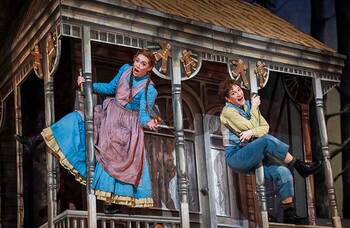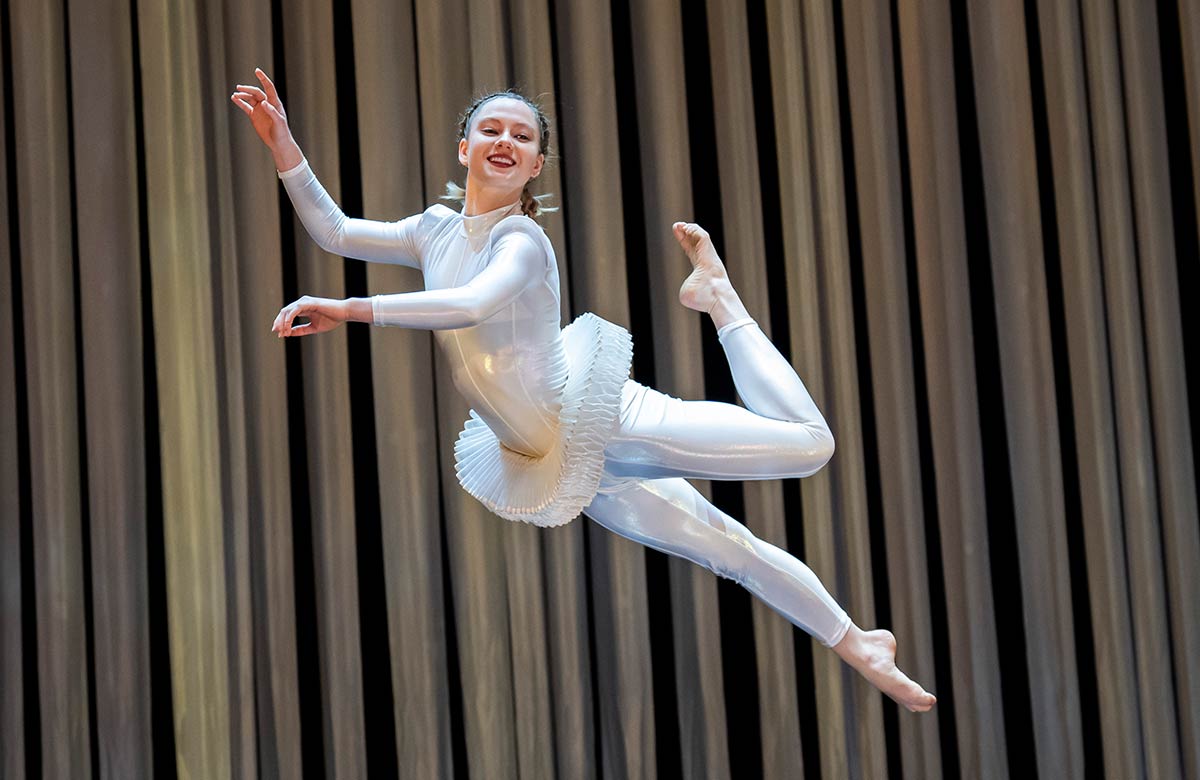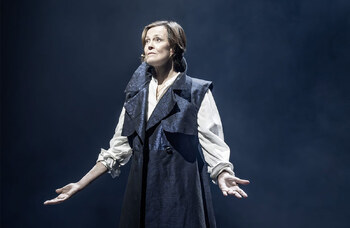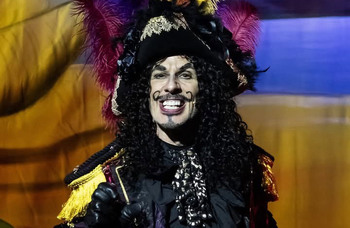Women, Beware the Devil review
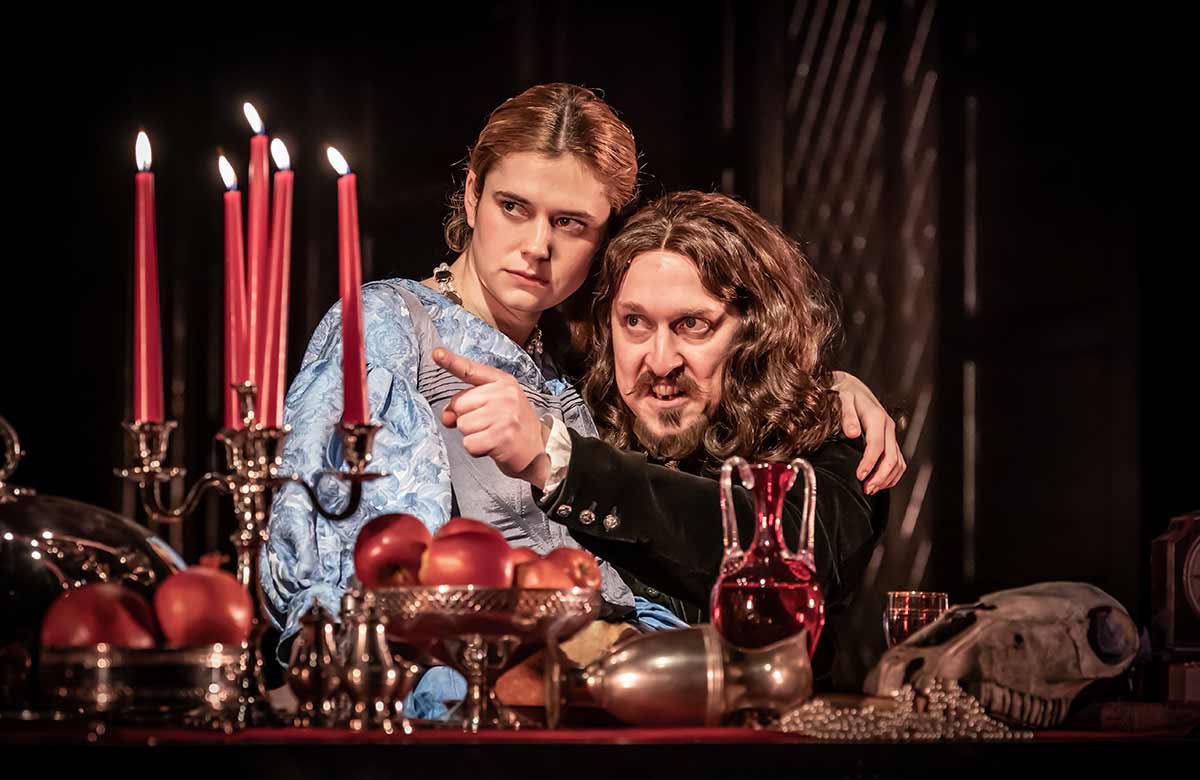
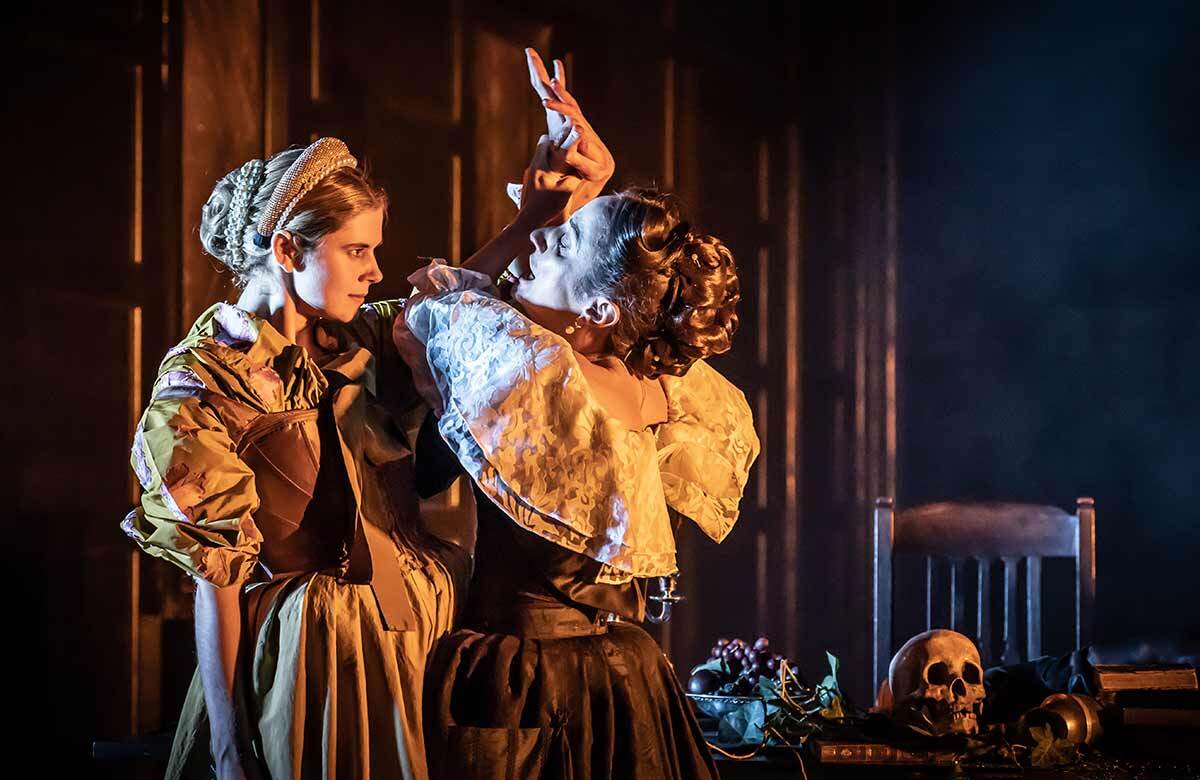
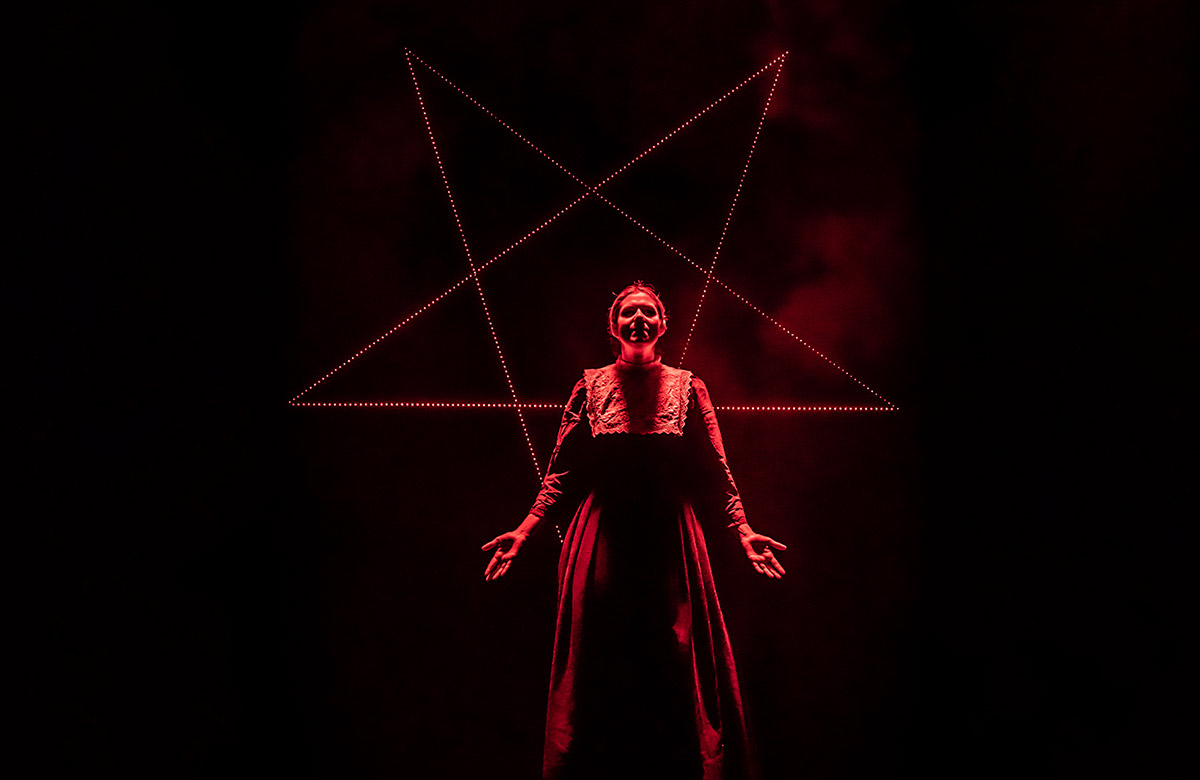
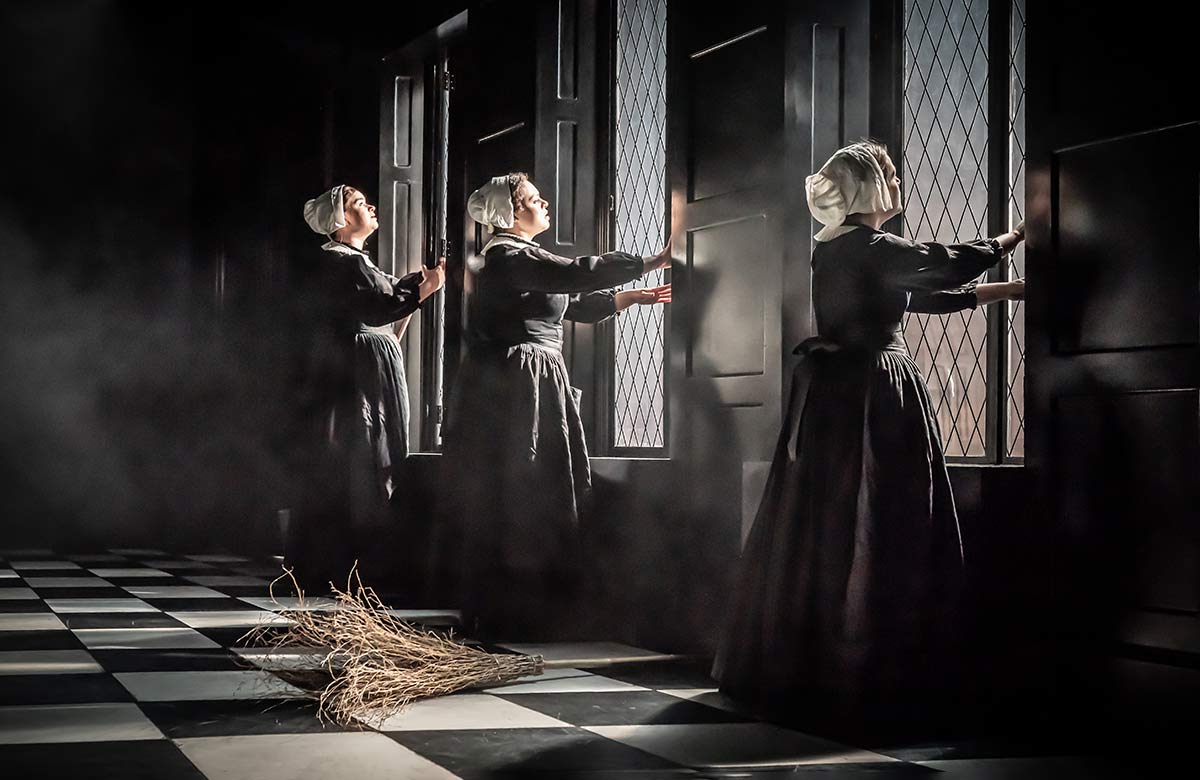
 Sam Marlowe
Sam MarloweSam Marlowe is reviews editor for The Stage. She trained and worked as an actor before becoming a full-time arts writer with a special ...full bio
Nebulous diabolical drama is frustratingly muddled but sumptuously staged

Sam Marlowe is reviews editor for The Stage. She trained and worked as an actor before becoming a full-time arts writer with a special ...full bio
Double, double, toil and trouble: what strange sorcery is this? Lulu Raczka’s new play sounded so enticing – a murky brew of witchcraft, politics and revenge tragedy – but it turns out that it is more likely to induce indigestion than intoxication. Oozing lurid imagery, it has a certain appealing, audacious swagger, thanks in no small part to a sumptuous production by Rupert Goold. But it is also a frustrating mess, its notions about class, gender and power barely conceived, let alone developed.
Promisingly, our master of ceremonies is the Devil himself (Nathan Armarkwei-Laryea), smiling and dapper in a sharp black suit, a neat little pair of horns tucked away beneath his trilby. Perusing a tabloid, he’s pleased to see that his influence is as rife in our screwed-up world as ever – but he is also irked that he doesn’t get enough credit. The decline of the observant Christianity that was once such a contentious influence on British history means that we don’t dread him like we used to; the word “evil”, he says, has been replaced in our lexicon by terms such as “systemic” and “patriarchal”. So he takes us on a joyride back through time, to a 17th-century England in ferment, with civil war and regicide looming, and society on the brink of transformative upheaval.
Continued...
With that, we’re off to the ancestral seat of the De Clare family, where Lady Elizabeth (a silken, purring Lydia Leonard) is hatching a scheme to cling on to the property. She has organised a marriage of convenience for her foppish, petulant brother Edward (a gamely boobyish Leo Bill) to Katherine (Ioanna Kimbook), the wealthy daughter of a shipbuilder, in the hope that they will produce an heir. But Edward prefers to get his kinky sexual kicks with the servants – or, repellently, with his own wearily compliant sister – and snobbishly refuses to marry into “trade”.
Fearing that they will lose the house to some grasping cousin, Elizabeth enlists the help of stable girl Agnes (Alison Oliver), who is rumoured to be a witch and whose malign practices are already suspected to be the cause of the estate’s failing crops and ailing livestock. Agnes must use her dark art to change Edward’s mind, or face the witchfinder. But, in keeping with the turbulent mood of the times, she spies an opportunity for subversive insurrection – and before long, it is she who is mistress.
Goold’s staging hurls itself into the brimstone and hellfire hokum of it all with gleeful elan, and visually it is sinfully gorgeous. Miriam Buether’s set, lit with Hammer Horror gloomy glamour by Tim Lutkin, features chessboard parquet, leaded windows and gleaming silver and mahogany. Skulls and strings of lustrous pearls are artfully arranged among lavish banquets, as if on a Golden Age still-life canvas. Blood trickles on pale flesh, candles flicker, scarlet pentagrams are slashed across walls.
Evie Gurney’s costumes are equally delicious. Leonard prowls in inky velvet and taffeta, while Bill prances, tossing his curls, in thigh-high leather boots and Kimbook shimmers in sapphire satin. As for Oliver’s Agnes, she sheds her filthy rags for the crisp black-and-white of a lady’s maid and is finally resplendent in a sky-blue gown, in which she flounces around her new domain like a deranged Disney princess.
Continued...
But what in the name of Beelzebub is the point of it all? Plenty of chewy, gristly morsels float briefly to the surface in Raczka’s bubbling cauldron, before disappearing back into its overheated soup of ideas. One is the British – and particularly English – preoccupation with property: our archaic leasehold laws and our ludicrous housing market that prop up so much inequality. There is a whiff of fun-poking at our old adage that “an Englishman’s home is his castle”, and at our National Trust deference for mansions that still represent immense privilege, historically often acquired by nefarious means.
Agnes’ revolutionary spirit flies lustily in the face of middle-class lickspittle convention and propriety, a defiance that is clumsily emphasised in a couple of half-baked fourth-wall-breaking monologues. And the drama’s notions about gender see the women resorting to cunning, magic, sex and reproduction to achieve their ends in a society controlled, institutionally and domestically, by men. At one point, we are told that all the maidservants’ menstrual cycles have synchronised: it is as if they are implicated in a necromantic geometry of feminine power.
But tonally, Raczka’s writing is haywire, muddling modern vernacular with more ornate cod-historical language, deadpan jokes draining the action of every last drop of tension. Her characters are striking archetypes, but they have less depth than an impish Holbein woodcut. Best, then, to enjoy this purely as a vaguely satirical romp, delivered by Goold with a flourish that, while it can’t disguise the play’s shortcomings, at least makes it worth goggling at.
So, we relish Adam Cork’s Wicker Man-ish folk songs, spookily sung by the servants between scenes. We revel in Oliver’s snarling, face-pulling terror-tactics, her humiliating subjugation of Bill’s vile Edward and her glittering voraciousness as she seizes her chance of vengeance and advancement. We chuckle at Leonard’s sardonic realpolitiking. And we savour each mischievous glimpse of Armarkwei-Laryea’s Lucifer, who also slips into sequences disguised as a witchfinder, a pastor and a society painter. But the devil, as they say, is in the detail, and this play is far too nebulous. It’s not quite diabolical; but it needs a hell of a lot more work.
More Reviews
Recommended for you
Most Read
Across The Stage this weekYour subscription helps ensure our journalism can continue
Invest in The Stage today with a subscription starting at just £5.99



